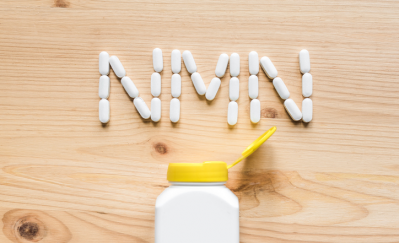Hot science: The 10 most-read science and nutrition research stories in 2023

Optimal NMN dose? India trial says 600mg per day boosted NAD+ level and physical performance
The optimal dose of NMN for boosting the body’s nicotinamide adenine dinucleotide (NAD+) level and physical performance is 600mg per day, according to findings of a 60-day trial in India.
The trial compared the effects of NMN supplementation at 300mg, 600mg, 900mg daily versus that of placebo.
It was found that blood NAD+ concentration had significantly increased in all groups that took NMN. However, NAD+ level was the highest in those who took either 600mg or 900mg of NMN.
And the winners are…Check out who took the top prizes at the NutraIngredients-Asia Awards 2023
AstaReal, Morinaga Milk, Glac Biotech, and GNC China were some of the winners of this year’s NutraIngredients-Asia Awards, held to recognise the brightest and best products, ingredients and initiatives across the nutrition industry.
Over 180 submissions were received for this year’s award entries, breaking a new record.
Some of the winners included AstaReal, which took home the Ingredient of the Year: Beauty from Within award, while GNC China won the Product of the Year: Omega-3.
Taurine’s eye-health benefits ‘very promising’ for functional food applications – China review
Research has shown that the supplementation of taurine is pivotal in reducing visual fatigue and for the maintenance of ocular health.
According to the China researchers, taurine has an important protective effect on retinal function.
For instance, it could shield the retinal photoreceptors, retinal ganglion cells (RGC), and retinal pigment epithelium (RPE) cells from oxidative stress damage, inflammation, apoptosis, and ocular neurotoxicity through various pathways, thereby reducing visual fatigue.
Prebiotic supplementation reduces blood pressure among people with hypertension – Australian trial
A high-fibre supplement has helped reduce blood pressure among people with hypertension by changing their gut bacteria, a small trial from Australia has reported.
Writing in Nature Cardiovascular Research, the researchers said that the drop in blood pressure was equivalent to taking a blood pressure-lowering drug and could reduce coronary death by 9 per cent and stroke death by 14 per cent.
The study included 20 people who were given food for three weeks that either contained the high-fibre supplement, a resistant starch called HAMSAB at 40g, or contained a placebo.
Probiotics mitigate disruptions to gut microbiota during bacteria-eradication treatment – China RCT
Probiotics supplementation has shown to reduce gastrointestinal side effects and restore alterations to the gut microbiota caused by Helicobacter pylori (H. pylori)-eradication therapy, according to research from China.
Writing in Frontiers in Immunology, the researchers said that the incidence of gastrointestinal adverse events, such as vomiting, bloating and diarrhoea, was lower in the probiotics group than the placebo group at 23.6 per cent versus 37.7 per cent. However, there was no significant difference in H. pylori-eradication rate.
During the trial, 249 patients were randomised to receive a 14-day quadruple therapy (bismuth potassium citrate, esomeprazole, amoxicillin, furazolidone), combined with probiotics supplementation (Bifidobacterium tetravaccine tablets) for 28 days, or the quadruple therapy alongside placebo.
NMN and arterial stiffness: Individuals with above-average BMI or blood glucose could benefit – Japan DHC Corp study
Individuals with above-average body mass index or blood glucose levels had reported a reduction in arterial stiffness following 12 weeks of nicotinamide mononucleotide (NMN) supplementation, according to research from Japan’s nutraceutical firm DHC Corporation Laboratories.
During the trial, changes in ankle-brachial index and brachial-ankle pulse wave velocity (baPWV) were measured, which were used to evaluate blood flow and arterial stiffness respectively.
Writing in Scientific Reports, the researchers said there were no significant difference in the average baPWV values between the intervention and placebo group. However, when the participants were grouped and studied based on their BMI and blood glucose levels, it was found that NMN supplementation had significantly reduced their arterial stiffness.
Kiwi then kip: Consuming kiwifruit with evening meal linked to improved sleep and mood – study
Consuming fresh or dried kiwifruits, alongside a standard evening meal, could significantly improve sleep quality and mood, said research from New Zealand.
The findings, published in Frontiers in Nutrition, showed that individuals who took kiwifruit powder saw significant improvements in morning sleepiness, alertness upon awakening, and vigour.
Funded by the New Zealand Tertiary Education Commission and the country’s High-Value Nutrition National Science Challenge, the researchers said that the improvements could be explained by serotonin metabolism.
Probiotic intake improves bowel movement in elderly with chronic constipation – study
The supplementation of Bifidobacterium longum BB536 had shown to improve bowel movement from baseline, specifically stool frequency, in elderly with chronic constipation, according to a four-week RCT conducted in Japan.
Specifically, significant improvements in the constipation scoring system (CSS) scores were seen in the intervention group by the end of the trial and even four weeks after the trial has ended.
No significant changes in the CSS score were reported in the placebo group. Even so, the differences in the CSS score between the intervention and placebo groups were not statistically different, the researchers wrote in The American Journal of Gastroenterology.
French pine bark extract intake reduces hair loss in postmenopausal women – six-month RCT
The supplementation of French pine bark extract had shown to increase hair density in postmenopausal women, according to a six-month clinical trial inconducted in Shanghai.
Seventy-six women were randomised to take the placebo or three supplement pills each containing 50mg of Pycnogenol – a proprietary bark extract from the French maritime pine tree provided by Geneva-based Horphag Research, which also funded the research.
Writing in Health Science Reports, the researchers said that hair density in the intervention group had significantly increased by 30 per cent within two months of supplementation.
Dipeptide collagen intake improves skin hydration and reduces peeling – Nongshim 12-week study
The supplementation of dipeptide collagen for 12 weeks had shown to improve skin hydration and reduce skin peeling among women aged 30 to 60, based on research conducted by South Korean food company Nongshim.
The research found that low molecular weight bioactive peptides present in the dipeptides Gly-Pro (glycine- prolyl) and Pro-Hyp (prolyl-hydroxyproline), could improve skin hydration and reduce skin peeling.
During the trial, 112 women aged 30 to 60 years old were randomised to a 3,300mg tablet containing 1,650mg of the dipeptides once per day or the placebo. Findings of the research were published in Food & Function.











